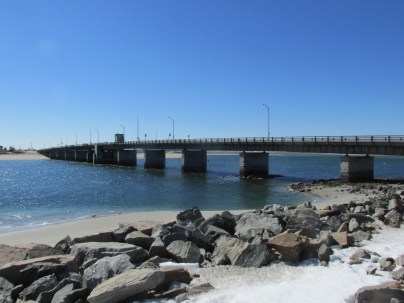
Following a two-and-a-half-year study, the New Hampshire Coastal Risk and Hazards Commission released a report summarizing the State’s vulnerabilities to projected coastal flood hazards over the next several decades.
According to the report, NH sea levels are expected to rise between 7.2 in. and 2 ft. by 2050 and between 1.6 to 6.6 ft. by 2100. Extreme storm surge events will have a significantly greater inundation extent and occur more frequently over time.
Annual precipitation is also expected to increase by as much as 20 percent by the end of the 21st century compared to the late 20th century, while extreme precipitation events are projected to increase in frequency and in the amount of precipitation produced.
“The Commission’s report summarizes vulnerabilities to projected coastal flood hazards and how these hazards could impact our seacoast economy, roads and buildings, and natural and historic resources,” says Cliff Sinnott, chair of the Commission and executive director of the Rockingham Planning Commission in Exeter. “We intend this report and the recommendations to serve as a starting point for state and local decision makers to begin addressing increasing coastal hazards.”
Legislation sponsored by NH Senators David Watters (D-Dover), Nancy Stiles (R-Hampton) and Martha Fuller Clark (D-Portsmouth) created the 36-member Commission in 2013 to recommend legislative action related to sea-level rise. Commission members include representatives from the State legislature, State agencies, regional planning commissions, academia and the private sector.
“The Seacoast region is home to more than 25 percent of New Hampshire’s workforce,” says Senator Stiles. “The state has a responsibility to ensure people and property are protected in the face of the trends of increased storm surge and flooding, and this report will help the state meet its responsibilities.”
The Commission advises the adaption of early, incremental change to manage the economic, environmental and social impacts of rising sea levels.
“The state and municipalities each have responsibilities for roads, public buildings, sewer and water and other infrastructure,” says Senator Watters. “The report emphasizes that early and consistent collaboration between state and local governments can result in solutions which in turn increase our preparedness and resiliency.”
